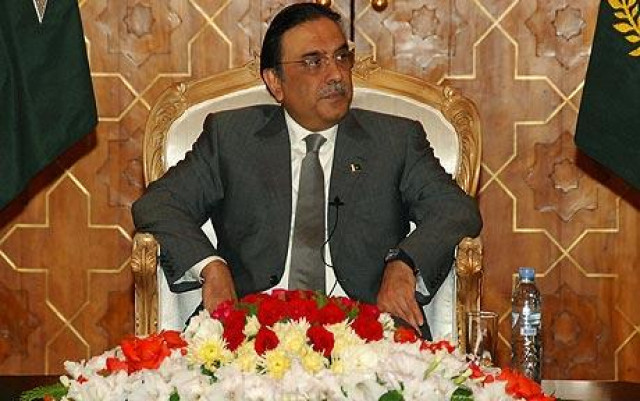Govt crafts two-pronged strategy
Strategy to ward off legal challenges to governments rule and defend parliament's supremacy.

Under the plan, the government is considering to move resolutions in both houses of parliament and in some of the provincial assemblies to muster support for President Asif Zardari regarding his immunity under the Constitution.
PPP insiders say the government’s legal wizards have been assigned to draft a “carefully drafted” motion that could indirectly convey the meanings that this immunity is absolute but its wording be kept vague to avoid criticism from the opposition.
The text of the resolution will include support for democracy in general, parliament’s supremacy and its prerogative to make and amend the Constitution.
An indication for such a move also came from Prime Minister Yousaf Raza Gilani himself who has been urging lawmakers in his recent speeches in parliament to defend their right as the supreme body on matters of legislation.
Back-door channels have also been activated to seek support for such a resolution from coalition partners and opposition lawmakers, sources said.
Sources in the PPP concede that it would be difficult to get the opposition’s support for a unanimous resolution. But they say if the PPP can muster even a simple majority vote in favour of the resolution it would suffice.
However, a group within the party advocates caution while going for this option. They are of the view that the move can backfire if a divided opinion comes whereby the government succeeds in getting the resolution passed from some assemblies but fails to do so in others.
The ruling PPP and its allies have a comfortable majority in the two houses of parliament and in the Sindh Assembly but it can face difficulty in getting such a resolution passed from Khyber-Pakhtunkhwa and Balochistan assemblies. The group is very clear about the Punjab Assembly because the PPP’s archrival PML-N enjoys a clear majority there. They say such resolutions, if passed unanimously, can only serve as moral support and a pressure tactic against the judiciary.
Lawyers front
In a parallel move, the ongoing bar-bench tussle initiated from Lahore would be encouraged to burgeon to other areas to turn into a full-fledged movement to politicise the superior judiciary.
Sardar Latif Khosa, whose group was allegedly active in the recent ugly incidents of violence at the Lahore district courts, was trying to expand their protest movement to other areas of Punjab. Pro-government lawyers believe that cases registered against lawyers of the Lahore High Court Bar Association and their manhandling by police has created sympathies for protesting lawyers which can easily be exploited to serve as catalyst for a bench-bar division.
They believe that the Lahore saga can trigger another lawyers’ movement, this time against the same judiciary that was reinstated after a powerful lawyers’ movement in 2007.
In case of further chaos the government can also mull over an option to send cases of some judges to the Supreme Judicial Council that would further destabilise the already volatile situation.
Published in The Express Tribune, October 3rd, 2010.



















COMMENTS
Comments are moderated and generally will be posted if they are on-topic and not abusive.
For more information, please see our Comments FAQ